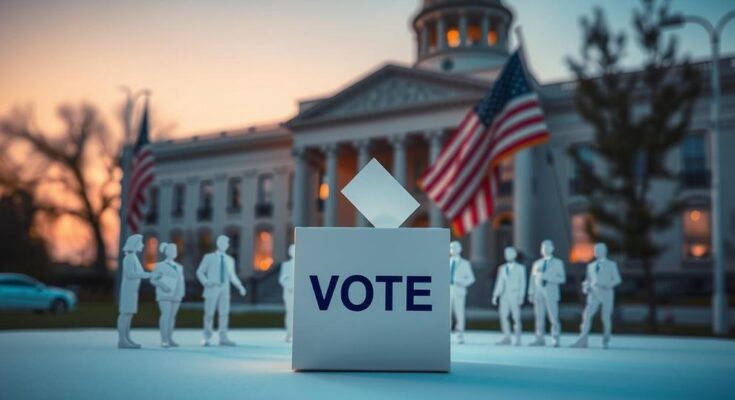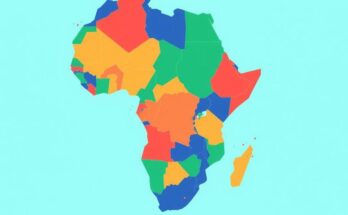Ecuador’s presidential election heads to a second round after President Daniel Noboa narrowly defeated Luisa González in the first round. Both candidates present contrasting approaches to tackle the country’s gang violence and economic problems. The runoff is scheduled for mid-April.
Ecuador’s presidential election will proceed to a second round due to the close results from Sunday’s first round. President Daniel Noboa, representing the conservative faction, narrowly defeated leftist candidate Luisa González, who surpassed expectations set by polls. The two will compete again in mid-April to determine who will lead the country amidst rising issues of gang violence and economic challenges.
In the initial voting tally, President Noboa garnered 44.3% of the votes while González received 43.8%. This race was particularly significant as both candidates emerge as relatively new figures in Ecuador’s political landscape, having started their political journeys recently. The first round’s outcome did not secure Noboa a majority, thus requiring a run-off.
Daniel Noboa, who has been in office since 2023, aimed for a decisive victory to avoid the second round. The election followed his predecessor Guillermo Lasso’s dissolution of the National Assembly. Noboa comes from a wealthy background in agriculture and has served as a member of the National Assembly, focusing on economic issues.
Luisa González, a protégé of former president Rafael Correa, gained political visibility when she became the presidential candidate for Correa’s Citizen Revolution party. Correa, who led Ecuador from 2007 to 2017, has faced legal challenges regarding corruption. González’s platform focuses on tackling crime and economic improvement, positioning her as a formidable opponent to Noboa.
Under Noboa’s administration, Ecuador has been grappling with escalating gang violence associated with cocaine trafficking, manifesting in soaring murder rates and violent incidents. While Noboa claims progress in combating crime through military mobilization, critics express skepticism regarding the effectiveness of his strategies. An incident highlighting this violence included a gang leader’s escape and a televised kidnapping of a news crew.
The comparison of murder rates illustrates the severity of the situation—46.18 murders per 100,000 people in 2023 decreased to 38.76 in 2024, but remains significantly higher than the 6.85 in 2019. Both candidates face the task of reassuring the electorate regarding safety and economic stability, with González promising to address the urgent needs within the society effectively.
Ecuador is currently navigating a turbulent political and social landscape characterized by increasing gang violence and economic instability. The current presidential election process reflects these challenges, with candidates presenting contrasting approaches to governance—Noboa maintaining a tough-on-crime stance and González advocating for reform. The election is taking place against a backdrop of historical political shifts marked by influential former leaders and their legacies.
The upcoming second round in Ecuador’s presidential election will decisively influence the country’s future as candidates Noboa and González offer differing solutions to urgent issues of crime and economic hardship. While Noboa seeks to reinforce his position amid safety concerns, González aims to emerge as a unifying force against crime. The electorate’s choice will reflect their priorities in a time of substantial challenges.
Original Source: www.euronews.com




